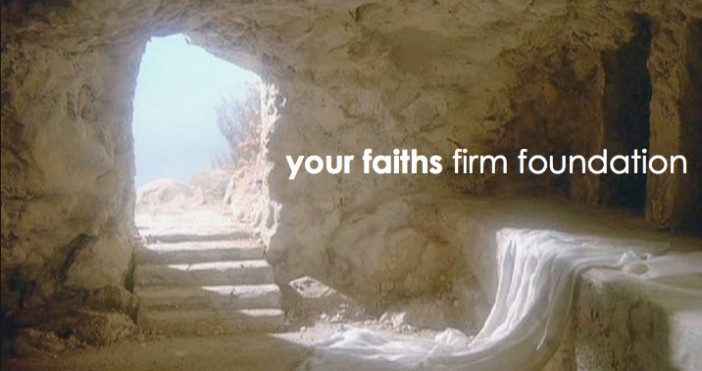
“Now one of the Pharisees invited Jesus to have dinner with him, so he went to the Pharisee’s house and reclined at the table. When a woman who had lived a sinful life in that town learned that Jesus was eating at the Pharisee’s house, she brought an alabaster jar of perfume, and as she stood behind him at his feet weeping, she began to wet his feet with her tears. Then she wiped them with her hair, kissed them and poured perfume on them.
When the Pharisee who had invited him saw this, he said to himself, “If this man were a prophet, he would know who is touching him and what kind of woman she is–that she is a sinner.”
Jesus answered him, “Simon, I have something to tell you.”
“Tell me, teacher,” he said.
“Two men owed money to a certain moneylender. One owed him five hundred denarii,[1] and the other fifty. Neither of them had the money to pay him back, so he canceled the debts of both. Now which of them will love him more?”
Simon replied, “I suppose the one who had the bigger debt canceled.”
“You have judged correctly,” Jesus said.” Luke 7:36-43
Two of the ‘women of faith’ in the new Testament have no names…One is a woman who, after twelve years of living with an ailment, touched the garment of Jesus as he was on his way to resurrect a girl from death. Yearning to touch Jesus and out of desperation, Jesus says to the woman, “Your faith has healed you….Go in peace.”
In today’s blog we will hear a story about a woman who either sits or falls at the feet of Jesus. For women in general, I believe, such intimacy comes more easily. Because of that, the women of the scripture are used by God to call all of us into a loving, personal relationship with the One who yearns to have us at His feet.
The unnamed characters of the Bible are important, for it may be easier to insert our names into the story. It is as if the Scriptures invite us to place ourselves in the unnamed person’s place. So may we find ourselves in the scripture today at God’s feet, in His presence….
Jesus had been invited to the home of a Pharisee by a man named Simon, who lived in a town that is unnamed. Since this was early in His ministry, I’m sure the Pharisees, at the least, wanted to know more about Jesus and, perhaps, even begin to “trick” Him into saying or doing things that would have violated their legalistic interpretation of the Law.
Perhaps Jesus arrived late or the Pharisees chose not to welcome him, but the traditional common courtesies of the host to the guest were not offered to Jesus.
First – – feet would be washed
Second – – greeted with a kiss by the host
Third – – oil was applied to the head – – we’re not really sure why that is….
The scripture says Jesus simply went into the house and reclined at the table
But when Jesus visited the home of this Pharisee, none of these things happened. Luke says that Jesus sat down at the table, without His feet being washed, without the customary kiss, or the anointing of oil.
Now, as they began eating, an unusual thing happened. This woman – Luke calls her a sinner – came to where they were eating – probably an outdoor patio to take advantage of the evening breezes. She fell at the feet of Jesus and started weeping. Her tears fell on His feet, so she dried them with her hair. After kissing his feet, she took a bottle of expensive perfume and poured the perfume on Jesus’ feet.
He is then criticized by Simon……you must not be a prophet….
Jesus replies, “Simon, I’ve got a situation for you….”
Once upon a time, there were two men who owed money to the same man. One owed 50 days wage – – about 10 weeks worth of income – – and the other owed 500 days of wage – – almost two years worth of income. The man gives the debtors a statement of debt with the stamp – – “PAID IN FULL.” Jesus asks Simon, (and us) “Who’s the most grateful?”
(Pause for a few seconds, wherever you are and wrap your mind around the words of this statement and the place you reside on your journey…. one question: Are you sitting at Jesus’ feet?)
Well, that’s what Simon said as well! The one who had the most debt canceled!
Jesus responds, “You’re right!”
Then, he turns to the woman and says to Simon,
“Did you see what she did? I came to YOUR house – – given no water for my feet, no kiss, no oil on my head…but she washed my feet with her tears and put oil on them and kissed them . . . I tell you her sins are forgiven for she has loved much…”
And then….the punch line….tucked away into the story – — easy to miss….
“For the one who has been forgiven little loves little”
He says to the woman, “Your faith has saved you; go in peace.”
– – “The one who has been forgiven little loves little.”
Put another way, “The one who is having trouble expressing love may be bound up in his/her sin.” A question for you to ponder… Have you had trouble expressing love lately?
If so, then the story of this woman of faith could give you an insight into why expressing love to others is so hard to do….
If we’re having trouble loving others, then it could be that we are bound up in our sin – – that we haven’t received and accepted the forgiveness that is being offered….
Only as we are able to experience forgiveness can we then love completely…
We’re all in debt, you know – – some more than others but we’ve all got our lists of sins….but it’s a debt we cannot pay. Did you know that our statement of debt has a stamp on it….if we handed out those quarterly statements right now – – -list of all of our sins against God and humanity…
“PAID IN FULL”

 “Jesus said to the servants, “Fill the jars with water”; so they filled them to the brim.” John 2.1-1.
“Jesus said to the servants, “Fill the jars with water”; so they filled them to the brim.” John 2.1-1.






